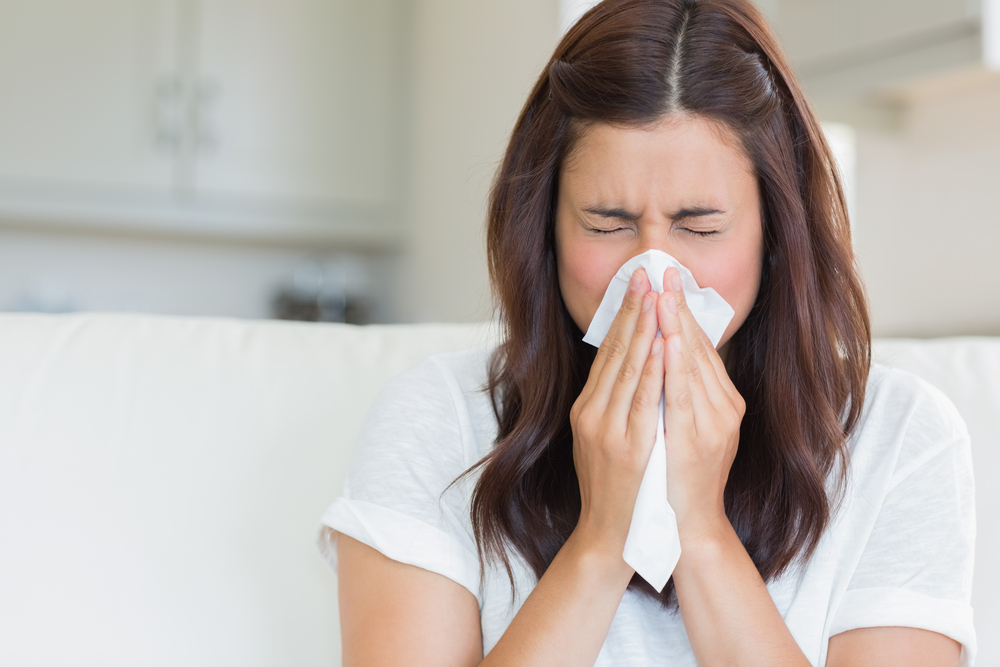
Can You Get 2 Colds at Once?

When you come down with a cold, the last thing you probably need is, well, another cold. But it turns out that, though uncommon, it is possible to get two colds at the same time, experts say.
In studies of people who were infected with a rhinovirus (which causes the common cold) or another type of respiratory virus, researchers have found evidence that some people indeed were infected simultaneously with a second virus, said virologist Lance Stewart, senior director of strategy at the Institute for Protein Design at the University of Washington.
And yes, having a double viral infection might make you feel worse than you'd feel with just one cold, Stewart said. But it's also possible that you wouldn't feel any different from how you'd feel with just a single cold, he added. [7 Absolutely Horrible Head Infections]
"It would really depend on the combination of viruses that you had," Stewart told Live Science. If you were infected with two rhinoviruses, for example, the two infections might produce similar symptoms, so you might not feel any different than you would if you had just one. On the other hand, if you were sick with a cold virus plus a flu virus, the viruses would affect your body in different ways, so it's possible that you would feel worse.
Double whammy
Dr. Amanda Porro, director of the Pediatric Care Center at Nicklaus Children's Hospital in Miami, said that having one infection may make a person more susceptible to getting any type of second infection because the body's defenses may be down. So while the immune system is trying to fight off one infection, another may take hold, she said.
For example, it's common for kids who have a cold to also develop a bacterial ear infection, Porro told Live Science.
However, it may depend on the person. In some cases, people may be less likely to get a second infection when they already have one virus in their system, Stewart said. When you have an infection, your immune response revs up, he said. That means that potentially, it would be primed for the fight and ready to take down a second invader before an infection could take hold. [The Common Cold: Myths and Facts]
Sign up for the Live Science daily newsletter now
Get the world’s most fascinating discoveries delivered straight to your inbox.
In any case, exactly how sick you feel is governed not by the number of viruses you may have but rather how strongly your immune system responds, Stewart said. A person who has a strong immune response to a virus may feel quite ill as their body unleashes a torrent of infection-fighting cells and antibodies to squelch the invading virus. A person with a weaker immune response might not feel so acutely ill, but they may also continue to fight off the infection over the coming weeks instead of just days.
"Sometimes, it's really good to feel very, very bad for 24 hours," he said.
Porro noted that you may feel worse because a raging fight against two infections could deplete your energy stores more than a fight against just a single infection. If your white blood cells were producing antibodies against a virus and then a bacterial infection were to come along, the immune system would have to make antibodies for both infections at the same time. You also might generally feel worse if you had an underlying condition, such as asthma or other respiratory problems, she said.
But ultimately, it could be nearly impossible to tell if you had two colds at once, Porro said. If you were getting over a cold when new symptoms started cropping up, that may signal a second infection. "But if the infections were similar, it'd be very hard to tell," she said."Our bodies come into contact with many germs every day," she said. Some germs are stronger and can drain our systems. "But usually, your body can handle infections well," she said.
Originally published on Live Science.

Flu: Facts about seasonal influenza and bird flu
What is hantavirus? The rare but deadly respiratory illness spread by rodents










